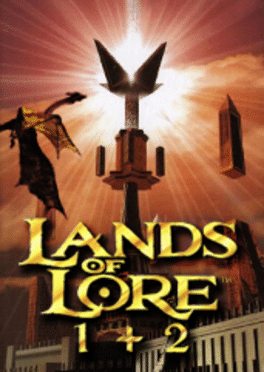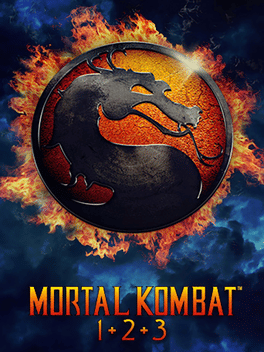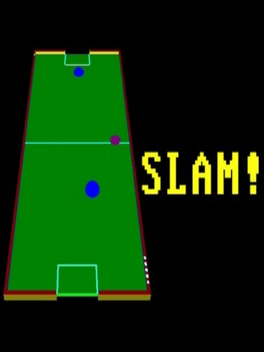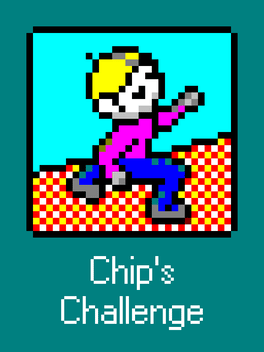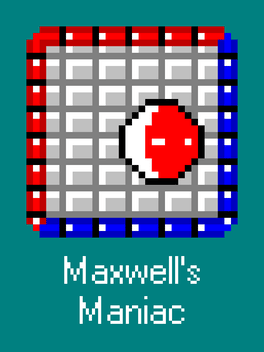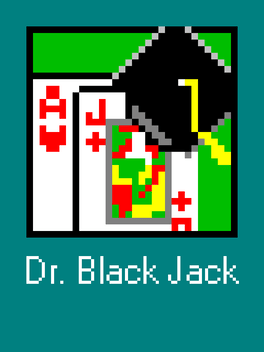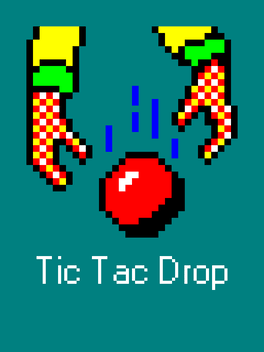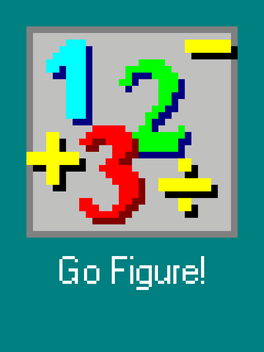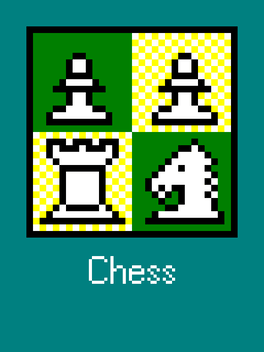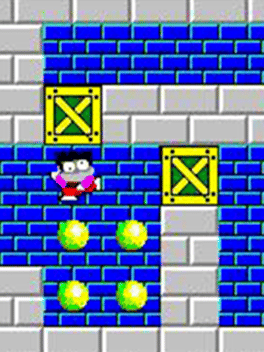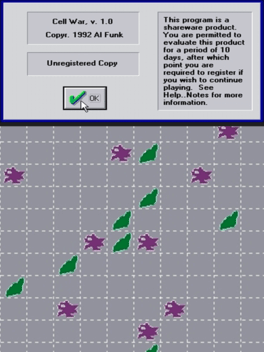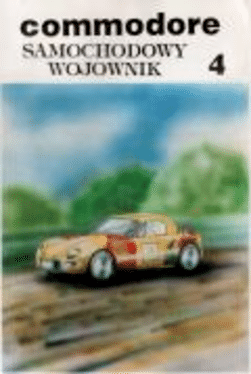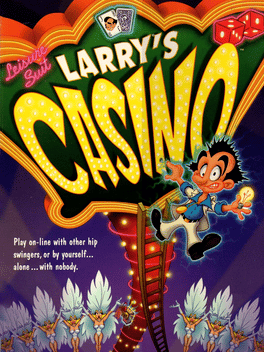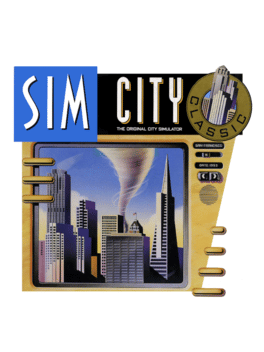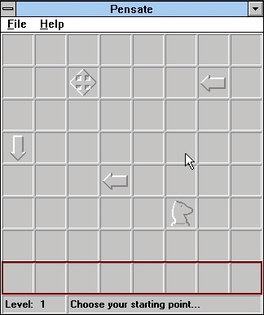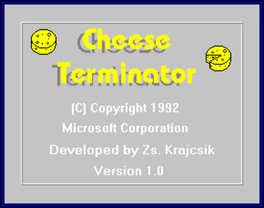New Pc Microsoft Windows Games - Page 3949
-
Lands of Lore 1+2
1993
-
Mortal Kombat 1+2+3
1993
-
Slam!
1993
Slam!
1993
Slam! is a Windows-based (3.x) simulation of the popular table game of air hockey. Players can customize opponents skills with the ability to change aggressiveness and quickness from 1 to 99, change view angle from zero to 90 degrees, turn sound on/off and have a choice of default color or monochrome default (black and white) coloring. You control your paddle with the mouse, and by right clicking players can enter the options menus. -
Get the Girl!
1993
Get the Girl!
1993
A group of teenaged boys decide to tackle the gentle art of conversational seduction through a flirting simulator, running players through a series of interviews with virtual girls, each of whom has a different personality and hence will weigh the same multiple-choice answers differently. Because teenaged boys don't necessarily enjoy the profoundest understanding of the female psyche, there is much humour in these conversational exchanges -- some intentional and some not. It isn't known if the girl can actually be "gotten" -- and if so, what one does with her then. -
Chip's Challenge
1992
Chip's Challenge
1992
The Microsoft Windows port of Chip's Challenge is a top-down tile-based puzzle video game based on the 1989 Atari Lynx original. It includes 149 levels (one more than the original's 148). It was included in the Windows 3.1 bundle Microsoft Entertainment Pack 4 in 1992, and the Windows version of the Best of Microsoft Entertainment Pack in 1995, where it found a much larger audience. -
Maxwell's Maniac
1992
Maxwell's Maniac
1992
Maxwell's Maniac is a computer game originally part of the Microsoft Entertainment Pack series. Loosely based on the concept of the Maxwell's Demon thought experiment, the object of the game is to separate the red and blue molecules into their respective color-coded chambers using a sliding door. It is superficially similar to JezzBall in layout. -
Dr. Black Jack
1992
Dr. Black Jack
1992
Dr. Black Jack is a computer game featured in the Microsoft Entertainment Pack for Windows. It is based on the popular card game Blackjack (aka Pontoon, 21 etc.). The minimum bet is 10 points per deal. -
Tic Tac Drop
1992
Tic Tac Drop
1992
Tic Tac Drop is a puzzle video game developed and published by Microsoft in the Microsoft Entertainment Pack 4 for Windows 3 in 1992. The game is a rendition of Connect Four but with several additional features like the ability to customize the size and shape of the play field as well as the length of line needed to win. -
Go Figure!
1992
Go Figure!
1992
In "Go Figure!", the player is given a selection of four numbers and they must use addition, subtraction, multiplication and division to devise a calculation that will match a target number. The player scores points for every equation they solve within the game's time limit. There are skill levels, a hint function and a high score table. -
Chess
1992
Chess
1992
An early computer iteration of Chess for Windows, released as part of Microsoft Entertainment Pack 4. -
Box World
1992
Box World
1992
Box World is a single player puzzle video game for Windows 3.1, created and published by Jeng-Long Jiang in 1992. -
Cell War
1992
Cell War
1992
Cell War is a shareware strategy game that can be played against either the computer of another human player. It is a turn based game; when each player has completed their turn the game board is updated. When both players pass the game is over and the score is calculated with the winner being the player with the highest average number of cells throughout the game. -
Samochodowy Wojownik
1992
Samochodowy Wojownik
1992
Samochodowy Wojownik is an arcade racing game with shooter elements. You are the driver of the police combat car - Ferrari 1200 DRX, struggling with a gang of smugglers in the suburbs. During the patrol, you will encounter the vehicles of the criminals and the criminals themselves who will try to eliminate the threat. The game is currently "Lost Media". -
4 Queens Computer Casino
1992
4 Queens Computer Casino is a video game published in 1992 on DOS by Applications Plus, Inc.. It's a simulation game, set in a cards and casino themes. -
SimCity Classic
1992
SimCity Classic
1992
SimCity Classic was the later shared name for the enhanced rereleases of SimCity for Windows 3.x, OS/2 Warp and Macintosh, built around their window systems. -
Pensate
1992
Pensate
1992
Pensate is a single-player, shareware, strategy/puzzle, turn based game that is based on the 1983 game by Penguin Software. This implementation is played on an 8x8 board and has ten levels. The players objective is to navigate their piece from the bottom of the board to the top, their token can only be moved horizontally or vertically. Also on the game area are opposing pieces which behave like chess pieces which move position every time the player makes a move, so the migration from the bottom of the screen to the top is complicated by the need to avoid being captured by these pieces. -
Cheese Terminator
1992
-
Kye
1992
Kye
1992
Kye is a real-time puzzle game with a variety of interacting objects. It takes ideas from puzzle games like Sokoban and Boulder Dash, but the inclusion of active objects gives it a real-time component, and it can also produce arcade-game levels like those found in Pac-Man. Anyone can create new levels for the game.
